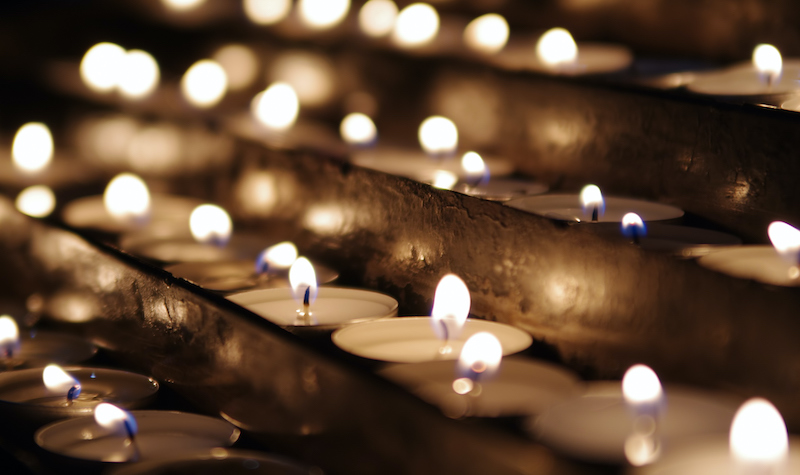
President Trump should allow the federal government to help Americans facing the funeral costs of COVID-19 victims.
Penniless and on his deathbed, legendary wit Oscar Wilde allegedly quipped, “I can’t even afford to die.”
Many Americans can relate to Wilde’s comment as they make funeral arrangements during the COVID-19 pandemic. But, unlike the Irish author, they tend to lack a rich friend to pay for their burial and tombstone.
Americans below the poverty line receive little to no government assistance to manage their deaths. What little aid that family members of the deceased can obtain for burial expenses typically depends on the state and locality where they reside. For example, Massachusetts offers up to $1,100 of aid for funeral and burial costs for low-income residents. The neighboring state of New York does not offer such assistance, but New York City typically provides low-income residents with a burial allowance of up to $900, which increased to $1,700 during the COVID-19 pandemic.
In the context of the COVID-19 pandemic, however, Americans could receive federal funeral aid if President Donald J. Trump were to expand the scope of his COVID-19 emergency declaration.
The federal government can offer support for losses sustained during an “emergency” or “major disaster.” Under the Stafford Act, the President may declare an emergency to activate limited federal assistance for “any” event or circumstance when he or she concludes federal assistance is necessary—including to “avert” future threats. The President can declare a “major disaster” to mobilize a variety of federal aid when a “natural catastrophe” causes severe damage to an area on American soil.
Presidents have declared emergencies under the Stafford Act for events ranging from the Oklahoma City bombing to the impact of Hurricane Sandy. President Trump recently declared major disasters under the law in response to Hurricane Sally and the wildfires that plagued the West Coast throughout September 2020.
Under the Stafford Act, the federal government can help Americans pay for their family members’ funerals if a presidentially declared emergency or major disaster caused the deaths. A federal rule allows the Federal Emergency Management Agency (FEMA) to pass on this financial assistance to victims, and limits the aid to assist with “funeral services,” “burial and cremation,” and “other related funeral expenses.”
President Trump, however, has only authorized COVID-19-related Stafford Act aid in the form of “crisis counseling assistance” and has barred FEMA from providing other forms of assistance.
A strongly worded letter sent in May from New York’s congressional delegation to President Trump and FEMA Administrator Peter Gaynor failed to elicit executive action to provide funeral assistance.
FEMA has offered funeral assistance to Americans impacted by previous major natural disasters, including victims of Hurricane Katrina, Hurricane Maria, and the tornadoes that struck Tennessee in April 2020. But the President and FEMA have offered no such aid in response to the COVID-19 crisis.
Even if President Trump gave FEMA the authority to provide funeral assistance for COVID-19 victims, aid applicants may still be disappointed. In response to Hurricane Harvey, the agency approved only about 3 percent of applications for funeral assistance.
Americans could receive some relief through a bill that U.S. Representative Alexandria Ocasio-Cortez (D-N.Y.) introduced to the U.S. House of Representatives in May 2020. The bill would offer COVID-19 victims up to $10,000 of assistance for funeral expenses. Furthermore, it would prohibit FEMA from requiring that a victim must reside in a “presidentially declared disaster area” to receive aid.
As of this writing, however, the bill has not moved out of committee.
Absent federal assistance, COVID-19 victims who suffered from poverty have been laid to rest in a variety of ways—through the power of individual fundraising, to the jarring imagery of mass burials. The U.S. Department of Veterans Affairs offers funeral assistance to veterans, with varying degrees of aid depending on whether the service member died in action and whether the individual seeks burial in a national cemetery.
In New York City, mass burials on Hart Island have meant that the poor individuals who succumbed to the virus lie together. The potter’s field is considered “perhaps the single largest burial ground in the country for people with AIDS.” This spring, the potter’s field received up to two dozen COVID-19 victims every day.
President Trump declared the COVID-19 pandemic a nationwide “significant health emergency” in March. Considering that more than 200,000 Americans have died from COVID-19 since then, it is well past time for the families of victims to be eligible for at least the same federal funeral assistance offered to those who lost loved ones due to other national disasters.



